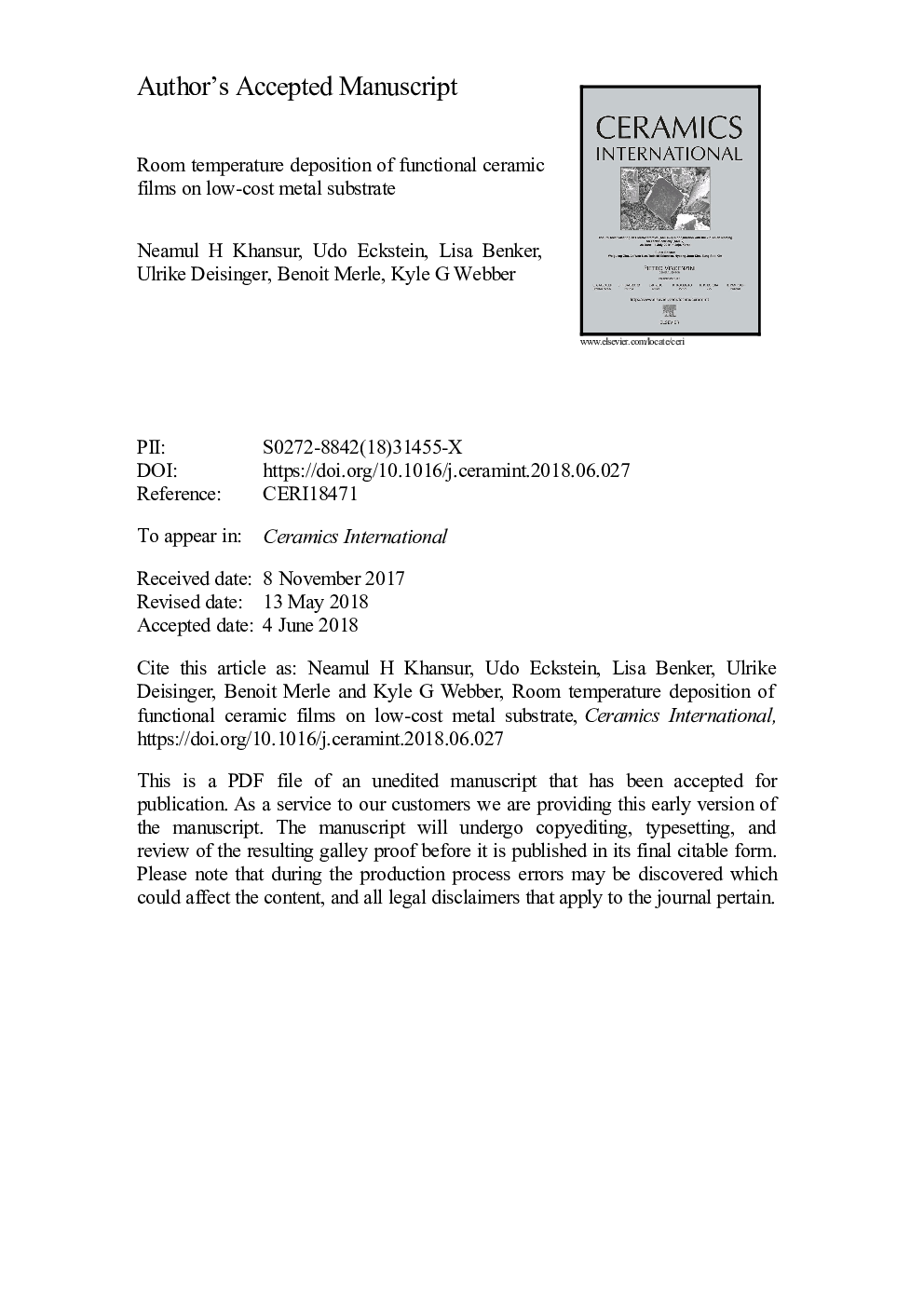| Article ID | Journal | Published Year | Pages | File Type |
|---|---|---|---|---|
| 7885828 | Ceramics International | 2018 | 26 Pages |
Abstract
In various practical applications, such as high power actuators, high sensitivity sensors, and energy harvesting devices, polycrystalline piezoelectric films of 1-100â¯Âµm thickness and sizes ranging from several µm2 to several cm2 are required. With conventional film deposition processes, such as sol-gel, sputtering, chemical vapor deposition, or pulsed laser deposition, it is difficult to fabricate films with higher thickness due to their low deposition rate and high interfacial stress. The aerosol deposition method (AD), a relatively new deposition technique, can be used to fabricate highly dense thick films at room temperature by the consolidation of submicrometer-sized ceramic particles on various ceramic, metal, glass, and polymer substrates. Ferroelectric BaTiO3 ceramic films of different thicknesses ranging from 1 to 30â¯Âµm were fabricated on a low-cost metallic substrate at room temperature using the AD method. Surface morphology and adhesion of the film were analyzed. Analysis of internal residual stresses revealed an equibiaxial compressive stress state in the as-processed film. Electrical characterization of films annealed at 500â¯Â°C shows an enhanced polarization value of ~â¯14â¯ÂµC/cm2 over that of the as-processed film. This improved property is related to the decreasing internal residual stress. In addition, the BT films prepared in this work were found to withstand electric fields greater than 100â¯kV/mm, which is possibly related to the inherent relatively defect-free structure of AD films.
Related Topics
Physical Sciences and Engineering
Materials Science
Ceramics and Composites
Authors
Neamul H. Khansur, Udo Eckstein, Lisa Benker, Ulrike Deisinger, Benoit Merle, Kyle G. Webber,
